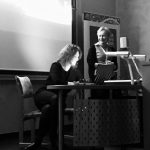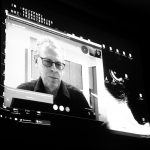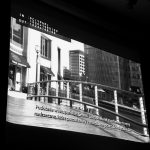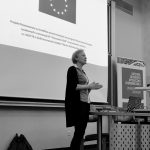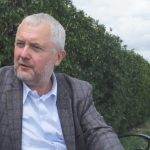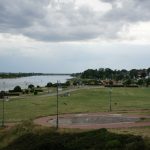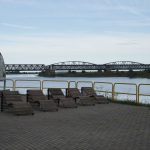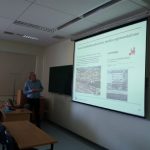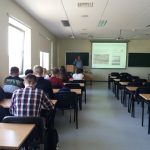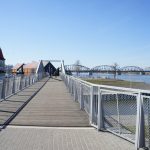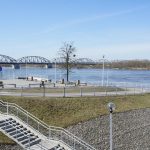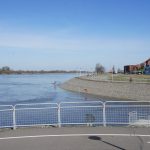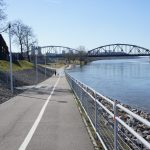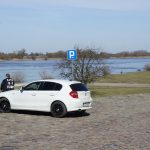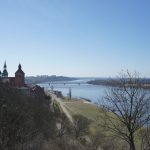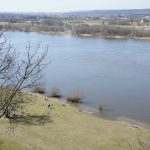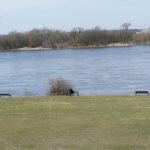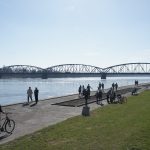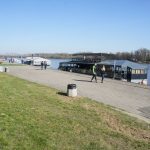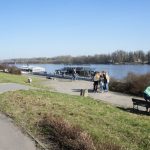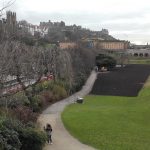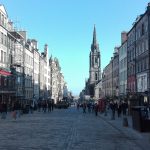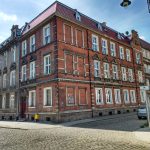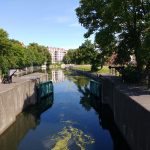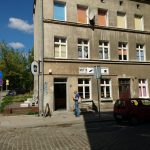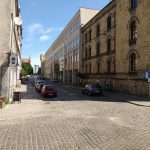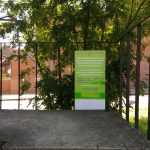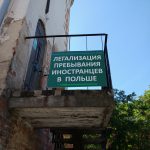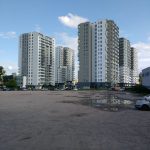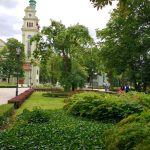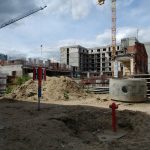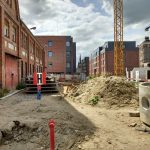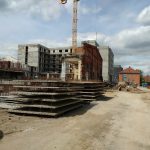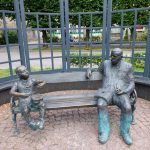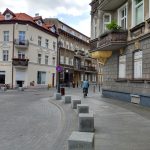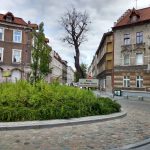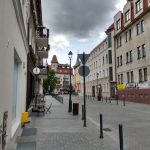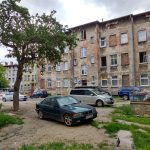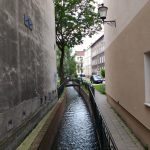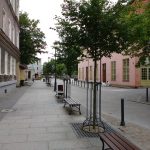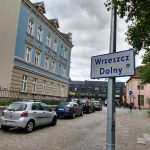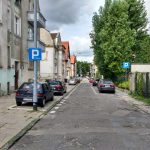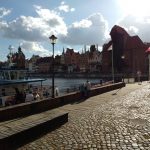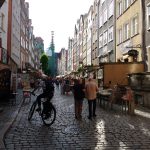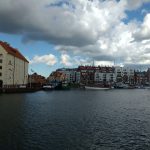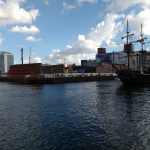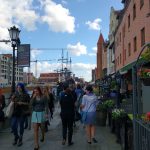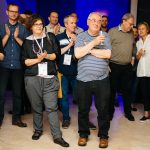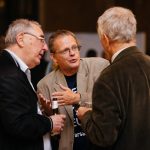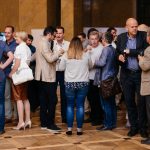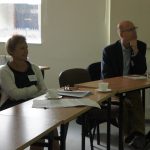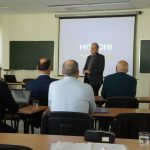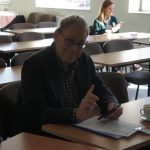POLONEZ – Beyond Core-Periphery Debates:
New Member States in the Construction of EU

Title
Beyond Core-Periphery Debates: New Member States in the Construction of European Union
Founder
- National Science Centre (Polonez 1)
Timeframe
2017 – 2018
Engaged persons
Project Beyond Core-Periphery Debates: New Member States in the Construction of EU is funded by the National Science Centre (Polonez 1) to support scientific projects implemented by foreign researchers, co-financed within the Marie Skłodowska-Curie COFUND Action in Horizon 2020.
THE COURSE OF THE PROJECT
The documentary finally released!
In the last months of the project, we have worked on the documentary about the development of the Vistula river waterfronts. Its first part focuses on global and national trends related to the waterfronts transformations. In the second one, we are moving to Gdańsk, Tczew, Grudziądz and Gniew, to compare the ways in which they develop their waterfront areas. In the film, we can see, e.g., some comments from prof. Iwona Sagan and prof. James Scott. Dr Jakub Szlachetko is then the guide to the places we visited with the camera. The work on the film was coordinated by dr Klaudia Nowicka.
The film is available HERE, and below you can see some photos from the premiere screening of the documentary.
We’re still rolling – on the boulevards and in the rushes.
Summer months have been very busy for the project team: open-air shots, pictures, stills – all these to achieve one goal. Our film shall not only be scientific, but also eye-catching. The project team have been visiting different places by the Vistula River with an aim to catch the unique atmosphere of the river banks and their differentiated features. There are many cities and towns located on the Vistula River and each of them manages the waterfront differently. Please enjoy some pictures taken in Grudziądz and Gniew where on the 21st July we had an opportunity to film the start of the 10th Canoeing Trip “Teutonic Castles Trail” from Gniew to Malbork.
- View of the Vistula River offered by the Teutonic Castle in Gniew
- The Teutonic Castle in Gniew as visible from the river bank
- The city of Grudziądz and a natural section of the Vistula boulevard
- A special T-shirt for all participants of the 10th Canoeing Trip “Teutonic Castles Trail”
We’re filming… the most creative part of our project is now ongoing!
At beginning of July 2018 we started working on a documentary, being a final product and a summary of one of the project’s research paths. The film, under the working name of „The renaissance of the river” will be a short documentary on waterfronts and spatial planning in towns and cities situated on the banks of the Vistula river.
From 6 to 11th July we were filming in Tczew. Below you can find a few shots and a still taken during the interview with Mariusz Wiórek, a representative of the Mayor of Tczew, who is actively involved in creating public spaces, revitalising the waterfront and reconstructing the old bridge – the landmark of the city.
- Mariusz Wiórek, a representative of the Mayor of Tczew
- The Vistula Boulevard in Tczew
- The Bridges on the Vistula River in Tczew
Urban Cultural Change: Smartness, Sustainability, Inclusion
Date: 29-30 November, 2018 | University of Gdansk
Dear colleagues,
We are pleased to invite you to the Conference “Urban Cultural Change: Smartness, Sustainability, Inclusion“, which will take place on 29-30 November 2018 in Gdansk.
Normative visions of Smart Cities (SC) such as those promulgated by the European Union connect advances in ICT with the development of social and human capital, holding out not only the promise of more inclusive, effective and democratic local governance, but also an invigorated sense of local citizenship and identity. Critics of SC paradigms urge caution. The frequent interplay between Big Tech interests, elite place-making projects and technology-centred interpretations are one reason why SC paradigms could in fact result in more, not less, technocratic and top-down governance. Much will in fact depend on specific policy contexts, processes of institutional change and local capacities to mobilise citizen engagement.
This aim of this conference will be to discuss interpretations and concrete practices of “Smartness” within a wider conceptual context. Understood in holistic terms, urban smartness targets not only ICT solutions to planning problems but supports a wider sense of place attachment, for example through greater citizen involvement and recognition and inclusion of bottom-up initiative. Do SC strategies for example provide space for innovation in the sense of greater civil society participation and a shift away from traditional orientations based on “hard” locational factors and paternalistic governance? To what extent is “Smartness” connected to changing urban cultures and greater appreciation of public spaces?
We hope to address these and other topic-related questions through cross-cultural perspectives and comparisons. We will, for example, provide insights from Polish experience where, in a bid for greater visibility and in hopes of combining economic growth with efficiency gains, environmental improvements, and more positive images, cities as diverse as Gdańsk, Gdynia, Kraków, Poznań and Warsaw have embraced SC strategies. How can these experiences be compared and contrasted with those of other countries.
We invite thought-provoking interdisciplinary contributions to this conference that offer perspectives, among others, from ongoing research, local experiences, theoretical and critical analysis and policy debates, regarding the salience of Smart Cities as a holistic urbanist paradigm.
The conference registration form (you can find it below) should be sent by 31 October 2018 (there is a 50% discount for young researchers and PhD students). You will receive a confirmation within a few days of your registration, together with travel and other practical information.
We very much look forward to seeing you this November in Gdańsk!
Kind regards,
Iwona Sagan and James Scott
Department of Socio-Economic Geography, University of Gdansk
Conference Registration Form
Conference Invitation
Publication Deatails
Please feel free to contact Klaudia Nowicka via klaudia.nowicka@ug.edu.pl if you need any further information.
Lecture for the students of Gdansk University
On 14th May 2018 professor James Scott gave a lecture for the students of the University of Gdansk. Professor Scott was talking about visible and invisible urban borders in cities, presenting some examples from Berlin and Budapest.
Professor James Scott at the EUROREG seminar in Warsaw
On 10th May 2018 professor James Scott delivered a paper at the EUROREG seminar, organised by the Centre for European Regional and Local Studies at Warsaw University. The origins of the “Thursday Seminars” date back to the mid-1970s. Nowadays, they are organised as an effect of collaboration of three institutions: EUROREG, the Polish Section of Regional Studies Association and the UNESCO Chair for Sustainable Development.
More on EUROREG seminars: http://www.euroreg.uw.edu.pl/en/seminars
The title of the professor’s paper was „Urban Cultural Change – Rethinking Europeanisation from a Central European Perspective”.
Link to the presentation: Euroreg 10052018 Urban Cultural Change
We will be making a documentary soon
We will start filming for our documentary, being a popular science summary of our project, really soon. Last weekend, 07-08.04.2018, Klaudia Nowicka went on the first reconnaissance to look for promising film scenery and some towns and cities which have (or not) taken the advantage of the rivers flowing through them. The first sunny weekend of this year and a large number of citizens were relaxing by the Wistula river in Grudziądz, Toruń and Tczew – some basic infrastructure is enough for people to revive the banks of the Vistula. On the other hand, Solec Kujawski and Świecie are excellent examples of towns which have not used their location properly.
Academic visit to the University of Edinburgh and Glasgow Caledonian University
Between 20-24th of February dr Joanna Stępień participated in the CRESH team meeting – Center for Research on Environment, Society and Health, operating at the University of Edinburgh and visited the Center for Climate Justice at the Glasgow Caledonian University.
Both visits were aimed at establishing academic cooperation and identifying potential research areas regarding the impact of place of residence on population health. The discussion was also focused on the possibilities of applying for financing of joint research projects. The details of the research of both teams can be found on the
https://cresh.org.uk and https://www.gcu.ac.uk/
The ECOC effect: III RECENTRE Workshop
On 17th January 2018 the third workshop organised within the framework of the NCN POLONEZ project: Beyond Core-Periphery Debates: New Member States in the Construction of European Union took place in the Department of Socio-Economic Geography. This time we had a pleasure to host an expert from Cracow – dr hab. Paweł Kubicki representing the Institute of European Studies at the Jagiellonian University.
The main subject of the workshop was the impact the European Capital of Culture Competition had on the identity of Polish cities which took part in the 2016 edition. The results of studies carried out by Paweł Kubicki, Bożena Gierat-Bieroń and Joanna Orzechowska-Wacławska have just been published in the book entitled “Efekt ESK. Jak konkurs na Europejską Stolicę Kultury zmienił polskie miasta” (so far only in Polish version). This issue matches perfectly the scope of the RECENTRE project, focused on modern identity of Polish cities.
Link to the book: http://www.wroclaw2016.pl/efekt-esk.-jak-konkurs-na-europejska-stolice-kultury-2016-zmienil-polskie-miasta
Are there any borders in cities? – a lecture in the 3rd Polish Navy Secondary School in Gdynia
On 1st December 2017, professor James Scott gave a lecture entitled „Borders in Cities – Do they Exist? If So, What Do They Tell Us?” for students of the 3rd Polish Navy Secondary School in Gdynia. The lecture was about the idea of mental maps, subjective perception of urban space and individual barriers and borders dividing cities. The students welcomed the lecture with significant enthusiasm, thus another meeting with professor James Scott is to be organised in 2018.
Citizenship and Democracy: II RECENTRE Workshop
On 29th November 2017 the II RECENTRE Workshop entitled „ Citizenship and Democracy” took place in Gdansk. During the workshop the RECENTRE research team as well as other employees of the Department of Socio-Economic Geography had an opportunity to meet a special guest – prof. dr hab. Leszek Koczanowicz, representing the SWPS University of Social Sciences and Humanities in Wroclaw. Professor Koczanowicz is a recognised philosopher. He is into philosophy of politics, concepts of democracy and ethics in politics. He was a lecturer at the University at Buffalo and Colombia University in New York. Professor Koczanowicz has written numerous books, including Politics of Time. Dynamics of Identity in Post-Communist Poland (2008), Lęk nowoczesny. Eseje o demokracji i jej adwersarzach (2011) and the latest one: Polityka dialogu. Demokracja niekonsensualna i wspólnota krytyczna (2015).
In the rhythm of POLONEZ about modern urban culture and identity of Polish cities
Several months of intense work on the RECENTRE project have just passed. Among many activities taken by the research team there were workshops, interviews, study visits and conferences:
- 6 working meetings, during which we were sharing ideas, developing research agenda and planning the fieldwork;
- fieldwork in Tricity, Cracow and Warsaw – study visits and interviews in several institutions being into urban identity, multiculturalism, place marketing and widely understood urban culture:
- Institute of Public Affairs (June 2017)
- Institute of European Studies (July 2017)
- Krajowy Instytut Polityki Przestrzennej i Mieszkalnictwa (July 2017)
- Best Place – European Place Marketing Institute (September 2017)
- European Urban Institute (September 2017)
- During the fieldwork professor James Scott made photo documentation, which allows us to see how a foreigner perceives cultural heritage of Polish cities. Where was he, an American living in Germany, was searching for urban culture? Let’s his photos answer this question.
Professors Iwona Sagan and James Scott took part and co-organised the 2017 EURA Conference in Warsaw: Cities locked in network, 21-24 June 2017, Warsaw.
They also delivered a paper “Place-Making through Urban Culture: “East-West” Perspective on Europeanisation”
Abstract:
Europeanisation is frequently understood in highly restrictive terms, as a convergence to a set of ideas, norms and practices that have been largely defined in Western European countries. This also applies to the diffusion of urban governance methods and strategies that make recognisable a “European way of doing things”. Processes such as the European Capital of Culture competition (ECOC), Smart Cities initiatives, and programmes targeted at inclusive urban development and regeneration are among the tools that the EU has promoted to support a more cohesive political community. However, Europeanisation can also be understood as a project of constant becoming, made up of highly varied local appropriations of European culture and history that only partly conform to specific norms. In this perspective, urban place-making and appropriations of culture give evidence of highly differential patterns and trajectories of Europeanisation in which East-West distinctions often play a strategic role. Based on a comparison of past and future ECOC projects in Central Europe, we will explore how and why the question of “East-West” emerges ideationally, discursively and pragmatically. On the other hand, we also address the question of how the East-West imaginary is mobilised and/or contested in concrete projects of place-making.
Online transmission: https://www.youtube.com/watch?v=MKgC-ZuG_bs
EURA 2017 Conference – programme with abstracts
- The research team co-organised the 2017 RSA Conference „Smart Cities – Regional Governance for Sustainability – Spatial Smartness” which took place in Gdansk, 21-22 September 2017.
- As a part of the research work a special workshop entitled “Polish ECOC experiences” was organised on 28th June 2017 with attendance of special guests – dr hab. Katarzyna Kajdanek and dr Jacek Pluta representing the Institute of Sociology at the University of Wroclaw. The invited guests have been carrying on the research on identity of Wroclaw in the context of its winning the European Capital of Culture Competition. The results of their studies have already been published – the PDF version of the book “Identity of Wroclaw in the 2016 ECOC perspective” can be accessed here: Wizerunek wrocławia w perspektywie ESK
- In July 2017 Professor James Scott took part in the Urban Neighbourhood Participation Workshop organised by the Hungarian Academy of Sciences in Budapest.
- In May 2017 Professor Scott presented a paper “Cultural Transformation and Public Space in Budapest” at the 2017 Urban Cultures Conference organised by the Jyvaskyla University Finland.
